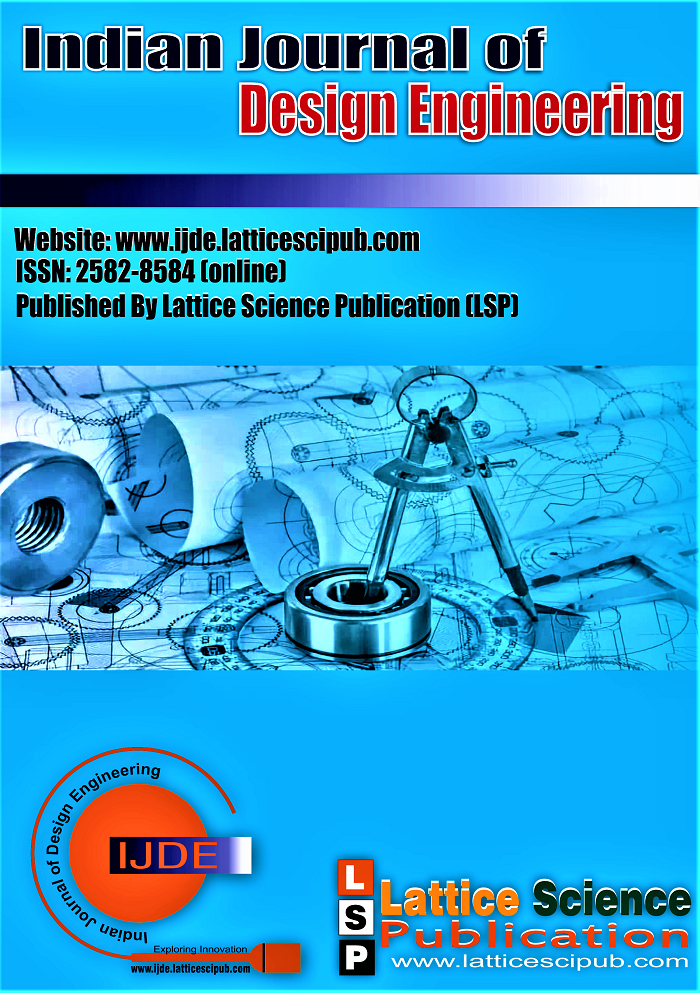Use of Vein Finder to Overcome Factor Affecting Peripheral Intravenous Cannulation, Venipuncture, IV Insertion, and Blood Draws
Main Article Content
Abstract
To find a vein for intravenous insertion is quite difficult in most of the people. This difficulty is due to several factors, such as the demographic and clinical characteristics of the patients (age, sex, height, weight, ethnicity, IV drugs history, and medical history), health professional’s experience, device characteristics, site of insertion, and vein characteristics. Many insertion attempts has to be done due to difficulty in intravenous insertion. This makes the patient uncomfortable and frustrated leading to challenge for the health workers. It is also an expensive affair for the health institutions. There fore to avoid the above problems medical practitioners should use the Vein Finder to locate the vein for intravenous insertion.
Downloads
Article Details

This work is licensed under a Creative Commons Attribution-NonCommercial-NoDerivatives 4.0 International License.
How to Cite
References
Witting MD. IV access difficulty: Incidence and delays in an urban emergency department. Journal of Emergency Medicine. 2012;42(4):483-487. https://doi.org/10.1016/j.jemermed.2011.07.030
Leidel BA, Kirchhoff C, Bogner V, Stegmaier J, Mutschler W, Kanz KG, Braunstein, V. Is the intraosseous access route fast and efficacious compared to conventional central venous catheterization in adult patients under resuscitation in the emergency department? A prospective observational pilot study. Patient Safety in Surgery. 2009; 3(1):24. https://doi.org/10.1186/1754-9493-3-24
Piredda M, Fiorini J, Facchinetti G, Biagioli V, Marchetti A, Conti F, Iacorossi L, Giannarelli D, Matarese M, De Marinis MG. Risk factors for a difficult intravenous access: A multicentre study comparing nurses’ beliefs to evidence. Journal of Clinical Nursing. 2019;28:3492-3504. https://doi.org/10.1111/jocn.14941
Armenteros-Yeguas V, Gárate-Echenique L, Tomás-López MA, Cristóbal-Domínguez E, Moreno-de Gusmão B, Miranda-Serrano E, Moraza-Dulanto MI. Prevalence of difficult venous access and associated risk factors in highly complex hospitalised patients. Journal of Clinical Nursing. 2017;26(23-24):4267-4275. https://doi.org/10.1111/jocn.13750
Van Loon FH, Van Hooff LW, de Boer HD, Koopman SS, Buise MP, Korsten HH, Bouwman AR. The modified A-DIVA scale as a predictive tool for prospective identification of adult patients at risk of a difficult intravenous access: A multicenter validation study. Journal of Clinical Medicine. 2019;8(2):144-156. https://doi.org/10.3390/jcm8020144
Rodríguez-Calero M A., Blanco-Mavillard I, Morales-Asencio JM, Fernández-Fernández I, Castro-Sánchez E, de Pedro-Gómez J E. Defining risk factors associated with difficult peripheral venous cannulation: A systematic review and meta-analysis. Heart & Lung. 2020;49(3):273-286. https://doi.org/10.1016/j.hrtlng.2020.01.009
Yamagami Y, Tomita K, Tsujimoto T, Inoue T. Tourniquet application after local forearm warming to improve venodilation for peripheral intravenous cannulation in young and middle-aged adults: A single-blind prospective randomized controlled trial. International Journal of Nursing Studies. 2017;72:1-7. https://doi.org/10.1016/j.ijnurstu.2017.03.009
Carr PJ, Rippey JC, Budgeon CA, Cooke ML, Higgins N, Rickard CM. Insertion of peripheral intravenous cannulae in the Emergency Department: factors associated with first-time insertion success. Journal of Vascular Access. 2016;17(2):182-90. https://doi.org/10.5301/jva.5000487
Jacobson AF, Winslow EH. Variables influencing intravenous catheter insertion difficulty and failure: An analysis of 339 intravenous catheter insertions. Heart and Lung: The Journal of Acute and Critical Care. 2005;34:345-359. https://doi.org/10.1016/j.hrtlng.2005.04.002
Sabri, A., Szalas, J., Holmes, K. S., Labib, L., Mussivand, T. Failed attempts and improvement strategies in peripheral intravenous catheterization. Bio-medical materials and engineering. 2013;23(1-2):93-108. https://doi.org/10.3233/BME-120735
Engström Å, Forsberg A. Peripheral intravenous catheter difficulty–A clinical survey of registered nurse and critical care nurse performance. Journal of Clinical Nursing. 2019;28(3-4):686-694. https://doi.org/10.1111/jocn.14668
Rani, Y. S. (2019). Numerical Research of Hall Current Influence on MHD Convective “Flow in Presence” of Jeffrey Fluid, “Heat and Mass Transfer.” In International Journal of Recent Technology and Engineering (IJRTE) (Vol. 8, Issue 3, pp. 7609–7620). https://doi.org/10.35940/ijrte.c6175.098319
Ramesh, G. (2022). Damage Assessment of Reinforced Concrete Structures: A Review. In Indian Journal of Design Engineering (Vol. 2, Issue 1, pp. 1–7). https://doi.org/10.54105/ijde.b8004.021322
Patil, S. B., Patil, P., Velagala, S., & Eggoni, H. (2019). Low Cost Automated Washing Machine. In International Journal of Engineering and Advanced Technology (Vol. 9, Issue 1s3, pp. 444–446). https://doi.org/10.35940/ijeat.a1080.1291s319
A Absolute Method of Worklife Balance in Public Sector and Private Sector Banks of Hyderabad (Urban) and Hyderabad (Rural) Regions. (2019). In International Journal of Recent Technology and Engineering (Vol. 8, Issue 4S3, pp. 439–444). https://doi.org/10.35940/ijrte.d1095.1284s319
Joshi, V. P., & Patil, Dr. A. R. (2020). To Examine the Traffic Characteristics of Urban Area and Provide Solution with Simulation Technique. In International Journal of Innovative Technology and Exploring Engineering (Vol. 9, Issue 7, pp. 525–527). Blue Eyes Intelligence Engineering and Sciences Engineering and Sciences Publication - BEIESP. https://doi.org/10.35940/ijitee.g5353.059720





